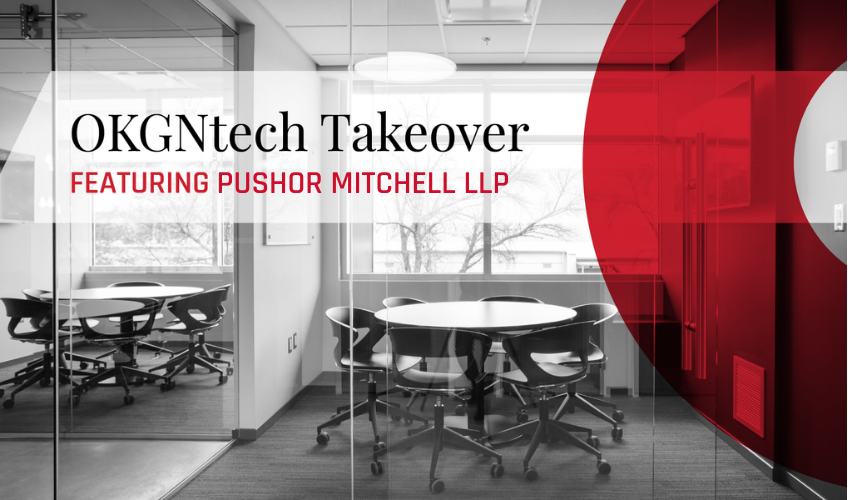It’s 2020! Welcome to a new decade, everyone!
I am going to kick off the new year, or should I say decade, with a series of posts aimed at helping new start-up companies tackle issues that are problems waiting to happen—at least from a litigator’s perspective.
The series’ title is indeed meant to be ironic. Many well-established companies never put any litigators on payroll and it would be difficult to think of a less-likely new hire for a start-up than a litigator. And yet, oh the things we litigators could tell you that could save you a thousand battle scars 10 years from now if only you would put us on payroll on Day 1. And oh, how would you still be in business 10 years from now if you put a litigator on payroll on Day 1? Since no one actually thinks a start-up could or should hire a litigator on Day 1, this series of posts will focus on the advice a litigator might give you if she were on your company’s payroll.
What is a litigator anyways? If you asked Mirriam-Webster online, you would have read that a litigator is “one who carries on a legal contest by judicial process: one who litigates legal cases”. With all my love to Mirriam-Webster (have you signed up for their Word of the Day email yet?) that definition somehow manages to be both skillfully accurate and not in the least bit helpful.
In the real world, business disputes do not resolve themselves because the Harvey Specters of this world make a few calls and/or threatening face-to-face visits.
To be fair, there are lots of different types of litigators. The type of litigator who could be most helpful to start-ups is a litigator who, like me, has specialized in business disputes. If we were stuck in an elevator together, I hope we would talk about something far more interesting than what I do for a living. But if you had to suffer through that topic, here’s what I would say. A business litigator is a lawyer who assists businesses through all stages of almost every type of dispute that can arise in the business context (except perhaps issues with employees because labour and employment law is a whole other bag of beans).
If you did ask Mirriam-Webster about the definition of a litigator, you might have also seen the quote from John Grisham: “For thirty years he had been a ruthless litigator, the meanest, nastiest, and without a doubt one of the most effective courtroom brawlers in Chicago.” Now that’s catchy. On no other level of life would anyone associate me with the word “brawler” so I guess I like the machismo exuding from the word. But let’s be honest. Anyone who uses the phrase “bag of beans” in her post is unlikely to be exuding all that much machismo in her day-to-day goings-on. So how is it that I have been doing this thing called business litigation for getting close to a decade, and doing it well enough that people keep paying me to do it?
Well, I hate to break all your Suits-loving hearts, but in the real world, business disputes do not resolve themselves because the Harvey Specters of this world make a few calls and/or threatening face-to-face visits.
Business disputes resolve themselves primarily because successful business people tend to make executive decisions once there has been a sufficient exchange of information to form the basis of a business risk assessment—not to mention that most businesses would like to get back to spending their time and money on what they actually do rather than on extending disputes any longer than necessary.
The epicentre of business dispute resolution is information.
Better Call Saul captures the reality of litigation unlike any other legal drama I have watched. For example, do you remember the episode in Season 1 when the unflinching Kim Wexler is relegated to the basement of Hamlin, Hamlin and McGill with the team of junior lawyers and articling students, demoted to spending endless hours with boxes, binders, sharpies and highlighters, reviewing the documents potentially relevant to a massive dispute being handled by the firm? Now that is real-life litigation. (Except that we now have incredible software/cloud computing options available for the document-heavy litigation to replace these paper-based instruments with their electronic equivalents, plus other added benefits like de-duping, filtering, redacting, searching, and all sorts of other -ings, although those tech alternatives are properly the subject of their own post.)
The point to be made here is that the epicentre of business dispute resolution is information, primarily written or otherwise recorded information.
So, let me ask you, new start-ups, where is your information? Two years from now, if your relationship with your angel investor has deteriorated into a liaison from Hades or your main supplier has quadrupled its price without notice, or any other bed of thorns is threatening your business’s ability to thrive (or worse, survive), where will that communication exchange, that contract amendment, or the video that exonerates your position be found? Will it be found? And how much time and money are you going to spend trying to find it?
What steps are you taking to preserve information that might not seem critical today but might save your backside if things go sideways?
Are you using a family member’s personal iPad or phone for texting with business contacts? Do you have a Bring-Your-Own-Device policy for your employees? What happens with your company’s information when your relationship with your family member changes, or your employees move on to new horizons?
What communication apps or other apps does your business rely upon? Do you know? Do you have a policy in place about which apps can be used for which purposes? Or a plan in place for the preservation of business-related information created through those apps or on the devices your business uses? What steps are you taking to preserve information that might not seem critical today but might save your backside if things go sideways?
Or how about this? What steps are you taking to purge information? Have you given any consideration to how long you should keep different types of information? And I don’t just mean your tax returns. I mean all of that data on your company’s social media platforms, and communication apps, and other B2B SaaS apps that are essential to efficiently carry out the work you need to do?
You probably do not have time for this right now. But should you have to call me, or someone like me, in a few years… you might just thank me—and yourself—for taking the time now
Did you know that if you sue or get sued in BC, you are obligated to disclose materially relevant records (think emails, texts, electronic and paper documents, internal and confidential memos, photos, Instagram posts, tweets, etc.) that are in your possession OR control, even—and especially—when those records are harmful to your business’s position, or bottom line, or, perish the thought, survival?
Maybe this is why you haven’t hired a litigator. We are annoying.
This is the information age, folks. And yes, these questions are most definitely annoying. And no, you probably do not have time for this right now. But should you have to call me, or someone like me, in a few years because something truly terrible, horrible, no good, very bad* has happened to or within or in any way related to your business, you might just thank me—and yourself—for taking the time now to think about how you are going to manage the information being created nearly every minute of every day on the devices your business is using.
Stay tuned for Chapter 2 of my If Your Start-Up Put a Litigator on Payroll series, titled “Mediate, Arbitrate, Litigate—Can You Keep Them Straight?”, where we will ask some hard questions about the standard form clauses you agree to and sometimes even include in your own start-up’s business contracts.
*Who doesn’t love Alexander? But I really doubt information and device management is any easier in Australia.
Connect with Alison or learn more about Pushor Mitchell LLP.






